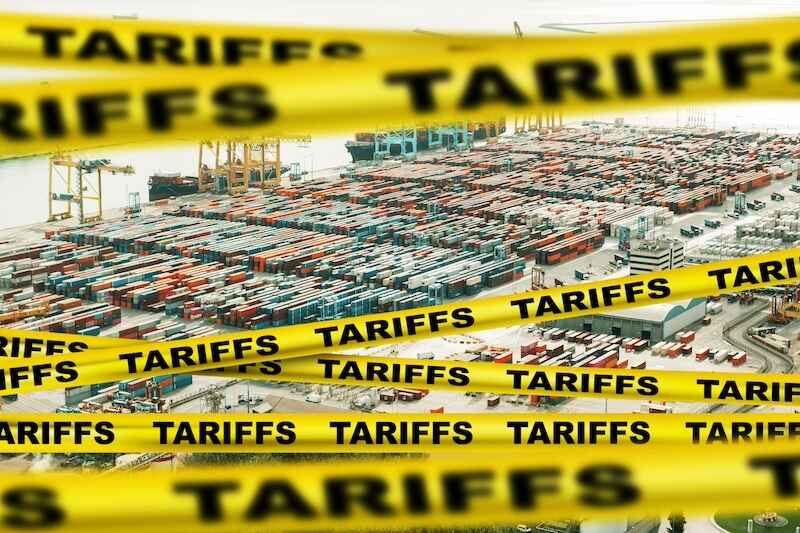Any Trade Dispute Resolution with China Will Still be a Problem
Shah Gilani|March 8, 2019
Editor’s Note: There’s more trouble brewing that not even an amicable China deal could solve. Just recently, a series of declassified documents has revealed something so terrifying that the media’s trying to keep it hush-hush. But since I’m here to tell you what everyone else won’t, here’s the deal: China has a “carrier killer” missile that can strike targets at Mach 10. Meantime, the U.S. Navy is defenseless against missiles with speeds that exceed Mach 5 – meaning the Navy’s potentially screwed by a power of two. So what’s that mean for you? Well, if I were to tell you the whole thing, it’d take an hour. But, by clicking here, you’ll be brought to a whole briefing on the subject. Take a few minutes, you won’t regret it.
While I’m cautiously optimistic there will be a trade dispute announcement out of the proposed late March summit between President Xi Jinping and President Trump, it won’t be great.
In fact, it will probably be just enough of a positive kind of “we’re going to keep working on it and agree to agree” announcement, with lots of concessions and positives to move the markets up, possibly to new highs.
My optimism is based on the needs of both presidents to make nice for their own reasons.
President Trump wants the stock market to go a lot higher and knows clearing the economic forest of tariffs and uncertainty will do that.
President Xi desperately needs a deal because China’s economy is slipping into indebted slow-growth (and possibly stagnation) and exports are still China’s lifeblood.
But, there’s a big difference between the removal of tariffs and a comprehensive trade deal that covers what’s really at the bottom of the two nations’ “trade” dispute.
And the chance of that happening is exactly between slim and none.
China is Not Going to Stop Doing What Made It Great
On the surface, talk has been about how China restricts access to its markets, how it protects its big industries by subsidizing them, how China floods the U.S. and global markets with cheap goods state-sponsored companies manufacture, and how China’s had a free run in the U.S. with few tariffs imposed on its imports.
Just under the surface, the truth is much more frightening – and frankly dangerous.
The real deal dispute is about China’s forced technology transfer requirements, where American companies who want to do business in China have to partner with a Chinese company and give up their technology secrets in the process.
It’s about intellectual property rights of American companies being trampled on and Chinese companies copying their products and underselling them globally and in China.
It’s about China’s SOEs (state-owned enterprises) getting cheap government financing, government protection, government contracts, and government anything they need to succeed and undercut American and other global companies.
And, it’s more deeply about the Chinese government hacking into American companies to steal trade secrets, hacking into America’s infrastructure companies, hacking into America’s military institutions, and (just announced this week) hacking into more than two dozen American and foreign universities where research is being done on maritime military technology, like submarine missile plans.
While both presidents need a deal and will probably announce one, it will never be what the U.S. wants and, more importantly, what it needs.
Why not?
Because China operates the way it does not as a matter of happenstance, but as a matter of national policy.
This week, Chinese Premier Li Keqiang told delegates at the National People’s Congress that the government would promote advanced manufacturing, citing emerging industries to nurture, including next-generation information technology, high-end equipment, biomedicine, and new-energy automobiles.
Instead of touting “Made in China 2025,” which upsets President Trump and the trade negotiating delegation, Li emphasized the new mantra, “Buy China.”
The government would “work faster to make China strong in manufacturing,” Mr. Li told the roughly 3,000 delegates.
[TRENDING] All it takes is $371 (for a shot to reel in an extra $30,000 a month)
Inside the Great Hall of the People in Beijing, Li said the government would help “encourage more domestic and foreign users to choose Chinese goods and services.”
According to Cornell University economist Eswar Prasad, who consults with Chinese officials, “These are precisely the sorts of structural policies that hardliners in the Trump administration do not trust China to change.” He additionally said statements coming out of China’s National People’s Congress “seem to validate their concerns.”
A separate report issued Tuesday by the National Development and Reform Commission, the country’s top economic-planning agency, which is leading the effort to draft the new industrial plan, said the government would help develop “a number of clusters of strategic, emerging industries.”
And, not surprisingly, the Finance Ministry recently vowed to “give full play to the government funds” to promote high-quality manufacturing and would “guide capital and resources toward key areas of strategic importance.”
In other words, China is not going to stop doing what made China great.
That doesn’t bode well for a comprehensive trade deal.
While I’m betting we’ll get one, I’m hedging just in case.
With what’s at stake for the Chinese, talks could break down.
If that happens, or worse, if talks descend into conflict, the market’s going south in a hurry.
Sincerely,
![]()
Shah

Shah Gilani
Shah Gilani is the Chief Investment Strategist of Manward Press. Shah is a sought-after market commentator… a former hedge fund manager… and a veteran of the Chicago Board of Options Exchange. He ran the futures and options division at the largest retail bank in Britain… and called the implosion of U.S. financial markets (AND the mega bull run that followed). Now at the helm of Manward, Shah is focused tightly on one goal: To do his part to make subscribers wealthier, happier and more free.

